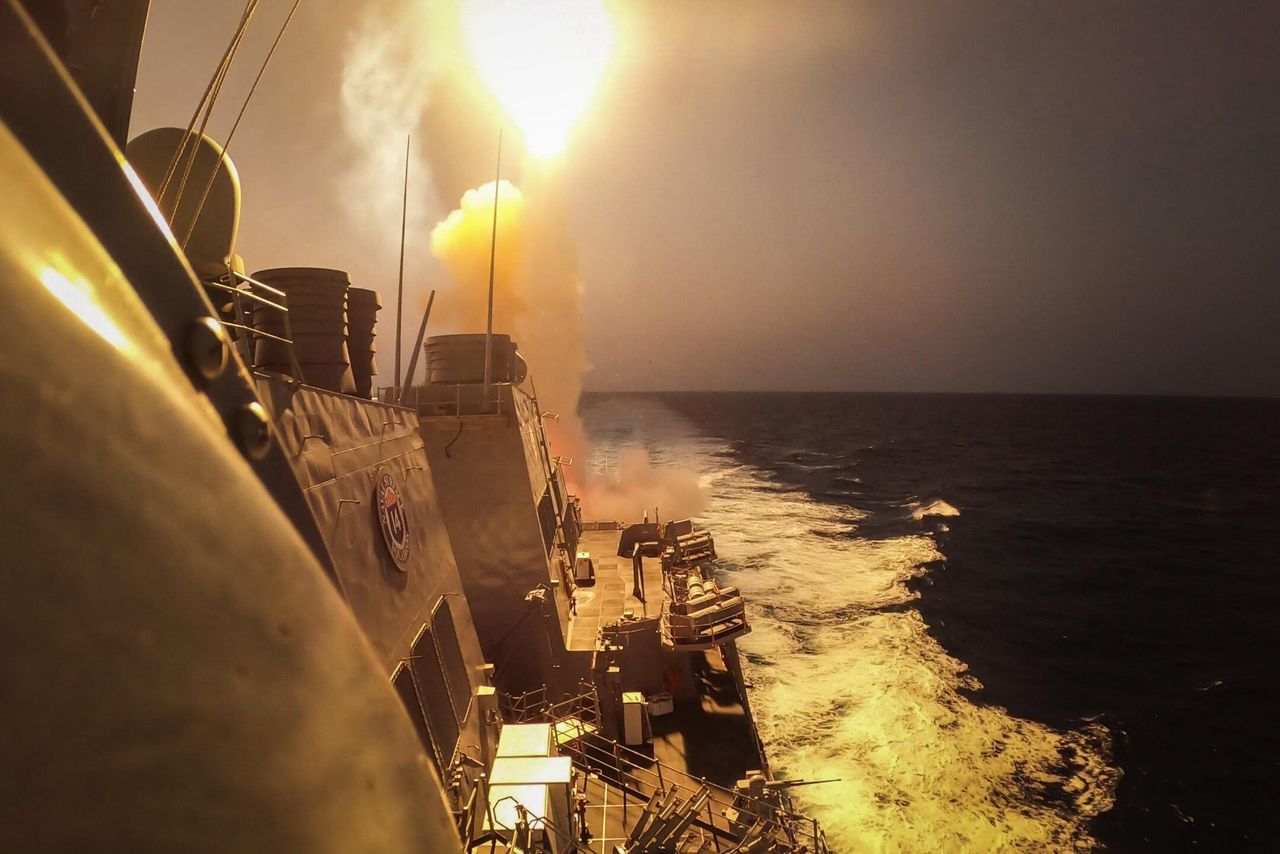
US and Houthi Rebels Reach Ceasefire Agreement Mediated by Oman
The deal aims to ensure freedom of navigation in the Red Sea amid escalating conflicts in the region.
The United States and Yemen’s Houthi rebels have reached a ceasefire agreement, as announced by Omani Foreign Minister Badr Albusaidi.
The agreement is intended to facilitate 'freedom of navigation' in the Red Sea, a crucial waterway that has been affected by Houthi attacks on shipping.
In a statement posted online, Albusaidi described the ceasefire as a result of recent discussions and efforts aimed at de-escalation.
He emphasized that both parties have agreed not to target each other, which is expected to ensure 'the smooth flow of international commercial shipping' in the region.
Earlier on Tuesday, President Donald Trump stated that the U.S. would halt military operations against the Houthis, following assurances from the group that they would cease actions disrupting critical shipping lanes in the Middle East.
Trump, speaking during an Oval Office meeting with Canadian Prime Minister Mark Carney, reported that the Houthis expressed a desire to end hostilities, stating, 'They said please don’t bomb us any more and we’re not going to attack your ships.'
The recent ceasefire comes amidst heightened tensions resulting from the ongoing conflict in Gaza, which began following a significant attack by Hamas on Israel on October 7, 2023. In response to escalating threats, the Houthis have reportedly targeted Israel and shipping activities in the Red Sea.
Tensions intensified after a missile from the Houthis landed near Israel’s Ben Gurion Airport on Sunday, leading to Israeli airstrikes on Houthi-controlled areas, including Hodeidah port.
In a further escalation, Israeli forces conducted airstrikes on Yemen’s main airport in Sanaa on Tuesday, marking the second such attack within 48 hours amidst the rising conflict between Houthi forces and Israeli military operations.
The current ceasefire agreement, if upheld, could serve as a pivotal factor in reducing further escalations in the region while emphasizing the importance of maritime security in a key global shipping lane.
The agreement is intended to facilitate 'freedom of navigation' in the Red Sea, a crucial waterway that has been affected by Houthi attacks on shipping.
In a statement posted online, Albusaidi described the ceasefire as a result of recent discussions and efforts aimed at de-escalation.
He emphasized that both parties have agreed not to target each other, which is expected to ensure 'the smooth flow of international commercial shipping' in the region.
Earlier on Tuesday, President Donald Trump stated that the U.S. would halt military operations against the Houthis, following assurances from the group that they would cease actions disrupting critical shipping lanes in the Middle East.
Trump, speaking during an Oval Office meeting with Canadian Prime Minister Mark Carney, reported that the Houthis expressed a desire to end hostilities, stating, 'They said please don’t bomb us any more and we’re not going to attack your ships.'
The recent ceasefire comes amidst heightened tensions resulting from the ongoing conflict in Gaza, which began following a significant attack by Hamas on Israel on October 7, 2023. In response to escalating threats, the Houthis have reportedly targeted Israel and shipping activities in the Red Sea.
Tensions intensified after a missile from the Houthis landed near Israel’s Ben Gurion Airport on Sunday, leading to Israeli airstrikes on Houthi-controlled areas, including Hodeidah port.
In a further escalation, Israeli forces conducted airstrikes on Yemen’s main airport in Sanaa on Tuesday, marking the second such attack within 48 hours amidst the rising conflict between Houthi forces and Israeli military operations.
The current ceasefire agreement, if upheld, could serve as a pivotal factor in reducing further escalations in the region while emphasizing the importance of maritime security in a key global shipping lane.